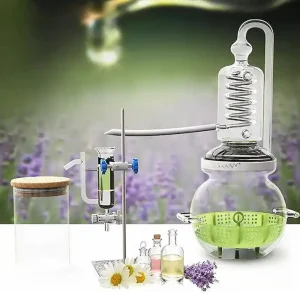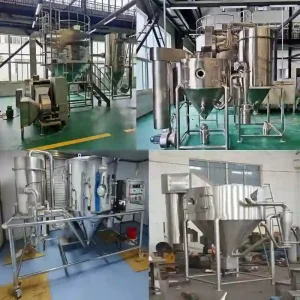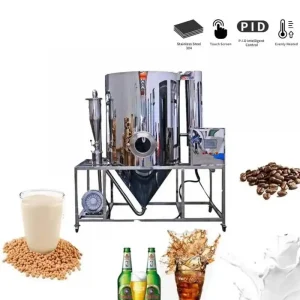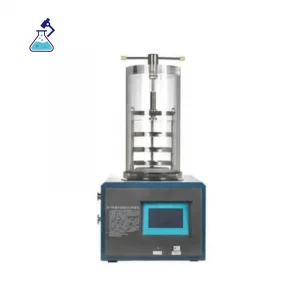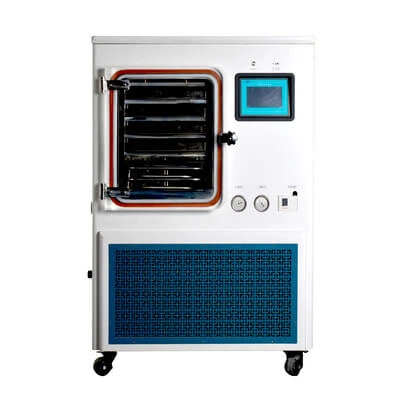
If you’re currently on the hunt for a lyophilizer, commonly known as a freeze dryer, you’re likely well aware of its vital role across various industries, including pharmaceuticals, food preservation, and research. Selecting the ideal freeze dryer can be quite a challenge, given the multitude of options available and the technical intricacies involved. This comprehensive guide aims to walk you through the crucial factors to consider, empowering you to make a well-informed decision that impeccably aligns with your requirements.
What is a Lyophilizer?
A lyophilizer is a specialized equipment used for freeze-drying processes. It removes moisture from samples while maintaining the sample’s structure and integrity. This technique is especially valuable when dealing with heat-sensitive materials or those that require long-term storage. Freeze dryers find applications in pharmaceuticals, biotechnology, food processing, and more.
Understanding Lyophilization
Unveiling the Essence of Lyophilization
Understanding Lyophilization
Lyophilization, also known as freeze-drying, stands as a sophisticated and ingenious drying technique. It revolves around eliminating moisture from substances while simultaneously safeguarding their chemical structure. This technique is extensively employed to elongate the shelf life of perishable items and preserve the integrity of delicate materials.
Significance of Lyophilization
The significance of lyophilization cannot be overstated. By preventing degradation and retaining the intrinsic properties of materials, this process assumes critical importance, particularly in fields like pharmaceuticals, where the stability of drugs holds paramount importance.
Exploring the Diversity of Freeze Dryers
Tray Lyophilizers
Tray freeze dryers embody versatility and adaptability across a broad spectrum of applications. They comprise trays onto which materials are evenly spread for the drying process. This type finds its sweet spot in laboratory setups and smaller-scale operations.
Rotary Lyophilizers
Engineered for high-throughput production, rotary freeze dryers take the spotlight. These machines feature shelves that rotate, ensuring an efficient drying process. Industries with substantial production volumes often opt for rotary freeze dryers.
Manifold Lyophilizers
With a focus on samples with lower volumes, manifold freeze dryers emerge as a compact choice. Particularly embraced in research environments, these freeze dryers cater to delicate materials with precision.
Why Choosing the Right Lyophilizer is Crucial
Selecting the appropriate freeze dryer is a critical decision that impacts the quality of your freeze-dried products. A well-suited freeze dryer ensures efficient and consistent results, minimizing the risk of product degradation or loss. Moreover, the right choice can save time, reduce energy consumption, and increase overall productivity.
Pivotal Aspects to Deliberate
Type of Samples
The type of samples you work with plays a significant role in determining the suitable freeze dryer type. Different materials require different handling methods and freeze-drying processes.
Throughput
Consider the amount of material you need to process at once. High-throughput freeze dryers are essential for industries with large-scale production needs, while smaller units might suffice for research laboratories.
Cooling System
The cooling capacity of a freeze dryer impacts its performance and efficiency. Ensure that the equipment can reach and maintain the necessary low temperatures for proper freeze-drying.
Vacuum System
The vacuum system is crucial for efficient moisture removal. An advanced vacuum system ensures optimal pressure levels, leading to faster and more precise freeze-drying.
Temperature and Pressure Control
When choosing a freeze dryer, consider its temperature and pressure control capabilities. Look for precise control, vacuum adjustments, and automated systems to ensure efficient and consistent freeze-drying processes.
Shelf Configuration
The arrangement of shelves bears a direct influence on the uniformity of drying. The flexibility offered by adjustable shelves accommodates a variety of sample sizes.
Technical Aspects at a Glance
Condenser Type
The condenser, pivotal in transforming water vapor into ice, comes in various types, including air-cooled and water-cooled variants, each possessing distinct advantages. The condenser’s efficiency affects the equipment’s ability to capture and remove evaporated moisture. Look for freeze dryers with high condenser efficiency to ensure excellent drying results.
Ice Capacity
The capacity of the condenser to hold ice plays a vital role in dictating the duration of the drying cycle.
Control System
An intuitive control system empowers you to monitor and adjust parameters like temperature and pressure with precision.
Maintenance and Service
Regular maintenance and service are essential for prolonging the lyophilizer’s lifespan and ensuring consistent performance.
Cleaning and Sterilization
Regular cleaning and sterilization prevent cross-contamination and ensure the integrity of each batch of freeze-dried products.
Service Availability
Choose a freeze dryer from a manufacturer or supplier that offers reliable and responsive customer support and maintenance services.
Precision in Sizing
The choice of freeze dryer size depends on the scale of your operations and the amount of material you need to process. Here’s a breakdown of the different sizes available:
- Benchtop Lyophilizers: Benchtop lyophilizers are compact and suitable for small-scale applications. They are commonly used in laboratories or research settings where the quantity of material to be freeze-dried is relatively low. These lyophilizers have a limited capacity but offer the advantage of being space-efficient and easy to operate. They are ideal for processes with small sample sizes or when working with sensitive materials that require careful handling.
- Pilot-Scale Lyophilizers: Pilot-scale lyophilizers are designed for medium-scale production and process development. They offer a larger capacity compared to benchtop models, making them suitable for applications that require greater output. Pilot-scale lyophilizers are commonly used when you need to upscale a process from laboratory settings to a semi-industrial level. They allow you to optimize freeze-drying parameters before moving to full-scale production.
- Industrial-Scale Lyophilizers: Industrial-scale lyophilizers are the largest and most powerful units, built for large-scale production purposes. They have significantly greater capacity and are used in industries where mass production of freeze-dried products is required. These lyophilizers are equipped with advanced features to ensure efficient and consistent processing of large batches. Industrial-scale lyophilizers are found in pharmaceutical, food, and other industries where high-volume freeze-drying is essential.
When selecting the right size of lyophilizer, consider factors such as your production volume, available space, budget, and the specific requirements of your products. It’s important to match the lyophilizer size to your production needs to ensure optimal efficiency and cost-effectiveness.
Navigating the Energy Landscape
Energy Consumption
Prioritize an energy-efficient freeze dryer to curtail operational costs over the long run.
Environmental Considerations
Delve into the environmental consequences of the freeze dryer’s energy consumption and refrigerants employed.
Budgetary Prudence
Initial Investment Recognize that lyophilizers constitute a substantial investment. Evaluate your budget, encompassing both equipment procurement and any potential facility modifications.
Operating Expenditures Factor in ongoing costs such as energy consumption, maintenance, and replacement parts.
Maintenance Expenses Regular maintenance stands as a cornerstone for optimal performance. Prepare for the associated expenses.
Manufacturer’s Eminence
Research and Evaluations Embrace manufacturers adorned with positive reviews and a reputation for furnishing top-tier equipment.
Vast Industry Experience Manufacturers boasting extensive experience tend to possess a heightened sensitivity to customer needs and deliver equipment renowned for its reliability.
Post-Purchase Support Consider the availability of technical support and spare parts subsequent to the purchase.
Adherence to Regulatory Stipulations
Regulatory Standards Ensure the selected lyophilizer aligns with relevant industry standards, particularly if your operations fall within a regulated realm like pharmaceuticals.
Streamlined Validation Procedures Prioritize a lyophilizer that seamlessly lends itself to validation processes to ensure compliance with industry regulations.
Mastery Through Training
Operator Training Skillfully trained operators can optimize the efficiency and lifespan of the lyophilizer.
Technical Assistance Ascertain whether the manufacturer extends technical assistance to address operational challenges.
Comparative Evaluation
Weighing the Pros and Cons Systematically list the advantages and disadvantages of each shortlisted lyophilizer.
Building a Shortlist Refine your options, tailoring them precisely to your unique requisites and inclinations.
Soliciting Quotations and Demonstrations
Acquiring Quotations Initiate a request for quotations from multiple manufacturers to facilitate a comprehensive price comparison.
Demonstration Requests Coordinate demonstrations to gauge the performance of the lyophilizer firsthand.
In the realm of lyophilization, making a well-informed choice stands as an indispensable key to unlocking efficiency and success. Armed with the insights from this comprehensive guide, you’re poised to embark on a journey toward selecting the perfect freeze dryer that seamlessly harmonizes with your distinct operational needs.
In conclusion, selecting the right freeze dryer is a crucial step in achieving successful freeze-drying results. By considering factors such as sample type, throughput, cooling capacity, and key features, you can ensure that the chosen equipment aligns with your specific needs. Properly understanding the freezing process and prioritizing maintenance and service contribute to long-lasting and efficient freeze dryer performance. Make an informed decision to enhance your freeze-drying processes and product quality.
FAQ
Q1: What is a lyophilizer and why is it important in various industries? A1: A lyophilizer, also known as a freeze dryer, is essential in industries like pharmaceuticals, food preservation, and research to remove moisture from substances while preserving their chemical structure, extending shelf life, and maintaining material integrity.
Q2: What are the main types of lyophilizers and their applications? A2: There are three main types of lyophilizers: tray lyophilizers are versatile for lab setups, rotary lyophilizers are suited for high-throughput production, and manifold lyophilizers cater to delicate materials in research environments.
Q3: What factors should I consider when choosing a lyophilizer based on sample size and volume? A3: For larger batches, consider tray and rotary lyophilizers. Smaller quantities are best suited for manifold lyophilizers, ensuring efficient drying.
Q4: How does the cooling system and vacuum system impact lyophilization? A4: The cooling system condenses water vapor, and the vacuum system removes moisture. Choose systems that match your operation’s scale for optimal efficiency.
Q5: What aspects should I evaluate in terms of the freeze dryer’s technical configuration? A5: Key aspects include the condenser type (air-cooled or water-cooled), ice capacity, control system for temperature/pressure adjustments, and the ability to maintain hygiene and simplify cleaning.
View more about Freeze Drying on Wikipedia

